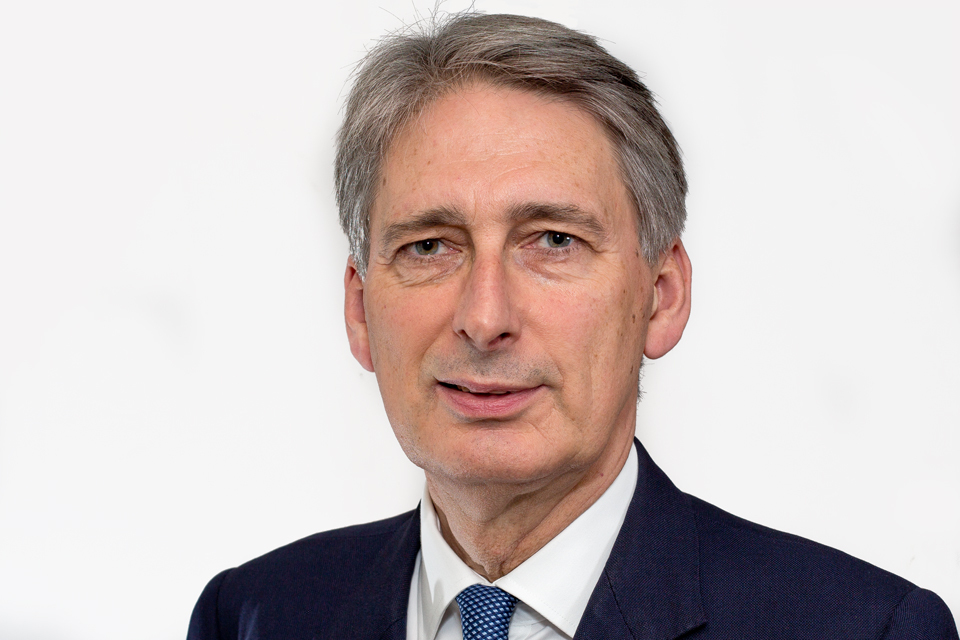Foreign Secretary opens London Conference on Afghanistan
Speech given by Foreign Secretary Philip Hammond at the opening of the London Conference on Afghanistan

Your Royal Highnesses, Your Highnesses, Ministers, Excellencies, Ladies and Gentlemen, I am delighted to welcome you to Lancaster House and to be joined by Chief Executive Abdullah Abdullah in opening the London Conference on Afghanistan. We look forward to being joined by President Ghani this afternoon.
This is the third time that we have brought together leaders from Afghanistan and the international community in London to work together to build a better future for the Afghan people.
The United Kingdom has invested heavily in Afghanistan’s security and development.
Our military contribution has been immense - at one point 9,500 British troops were stationed in Helmand.
Our contribution has been great but it has absolutely not been unique.
Afghanistan’s development and security have been a shared endeavour for over a decade.
It has demanded great sacrifices from Afghans themselves and from nations around the world and I pay tribute to all those Afghans and members of the International Security Assistance Force, including the 453 UK service personnel, who have been killed in operations there . We should also remember all the Afghan and international civilians who have been killed as a result of the conflict, including Ronnie Jessiman and Tawab Sediqi, British Embassy staff killed in an attack on their car, only last week.
Those who have strived to achieve security and development in Afghanistan can take great pride in what has been achieved.
Pride that the terrorist threat from the region has been substantially reduced.
Pride that after 30 years of war, Afghanistan has a constitution, a democratic system of Government and a long term strategy for its future.
Pride that the country has recorded its first ever peaceful political transition…
… And President Ghani and Chief Executive Abdullah Abdullah in particular can be proud of the statesmanship they have shown in enabling the country to reach that point.
We can all be proud of the development gains Afghanistan has made…
… basic infrastructure brought back online and upgraded…
… giving nearly 30% of Afghans reliable access to power compared to just 6% in 2002
… helping 6.7 million children attend school, more than 2.5million of whom are girls who, under the Taliban, would have had no such opportunity
… putting 60% of the population within two hours’ walk of a public health facility whereas in 2002 only 10% had any access to health services . And in a country that has been plagued by insecurity so long, we can be proud to say we helped build the Afghan national security forces from scratch into a 350,000-strong force, capable of battling the insurgency independently.
In short, we meet at a time when Afghanistan is entering a new chapter in its history, the start of a Transformation Decade, where it will take the lead in managing its own development and security.
But we should not underestimate the scale of the challenges ahead nor the enduring need for a strong partnership between Afghanistan and the international community. While much has been achieved, there is much, much, more to do.
In Wales last September NATO allies and partners reconfirmed our commitment to Afghanistan. Afghan National Security Forces will take full responsibility for security throughout their country at the end of 2014. But the new NATO mission will be on hand to train, advise and assist the ANSF.
The NATO Summit also confirmed the international community’s commitment to ongoing financial support to the ANSF up to 2017 and, where appropriate, throughout the Transformation Decade.
The majority of our troops may be coming home, but at the 2012 Tokyo conference the international community pledged ongoing assistance to Afghanistan. Today we must reaffirm that commitment to support the Afghan people as they develop their economy, realise their rights and connect with their region.
But there are two sides to the commitment: The Afghan people and government in line with the Tokyo agreement must demonstrate to the taxpayers of donor countries that their assistance is being used wisely.
The National Unity Government, barely two months on from the inauguration of President Ghani, has moved swiftly to deliver progress in the justice sector and has made a welcome commitment to tackling the Kabul Bank scandal.
I applaud the government’s early focus on accountability and the anti-corruption agenda. It bodes well for a comprehensive reform agenda in the areas that matter most to achieving sustainable development – the economy and business environment, regional cooperation, women’s rights and electoral reform.
Today is an opportunity for us to hear from the representatives of the National Unity Government about their vision for Afghanistan’s long-term development, and about their priorities for the engagement of the international community with that agenda. Later today, we will hear from President Ghani. But now we will be addressed by CEO Abdullah Abdullah.
CEO, I am delighted to give you the floor.
Further information
-
Follow the Foreign Secretary on Twitter @PHammondMP
-
Follow the Foreign Office on Twitter @foreignoffice